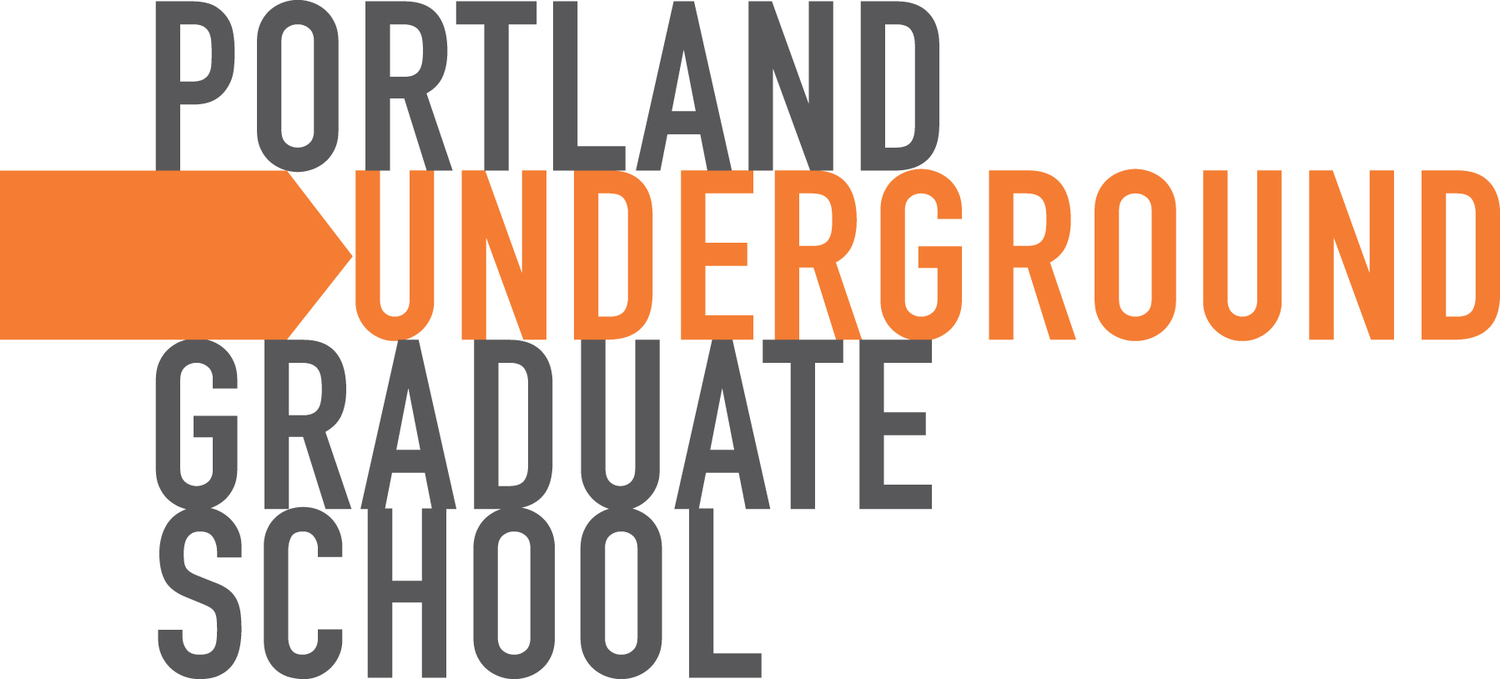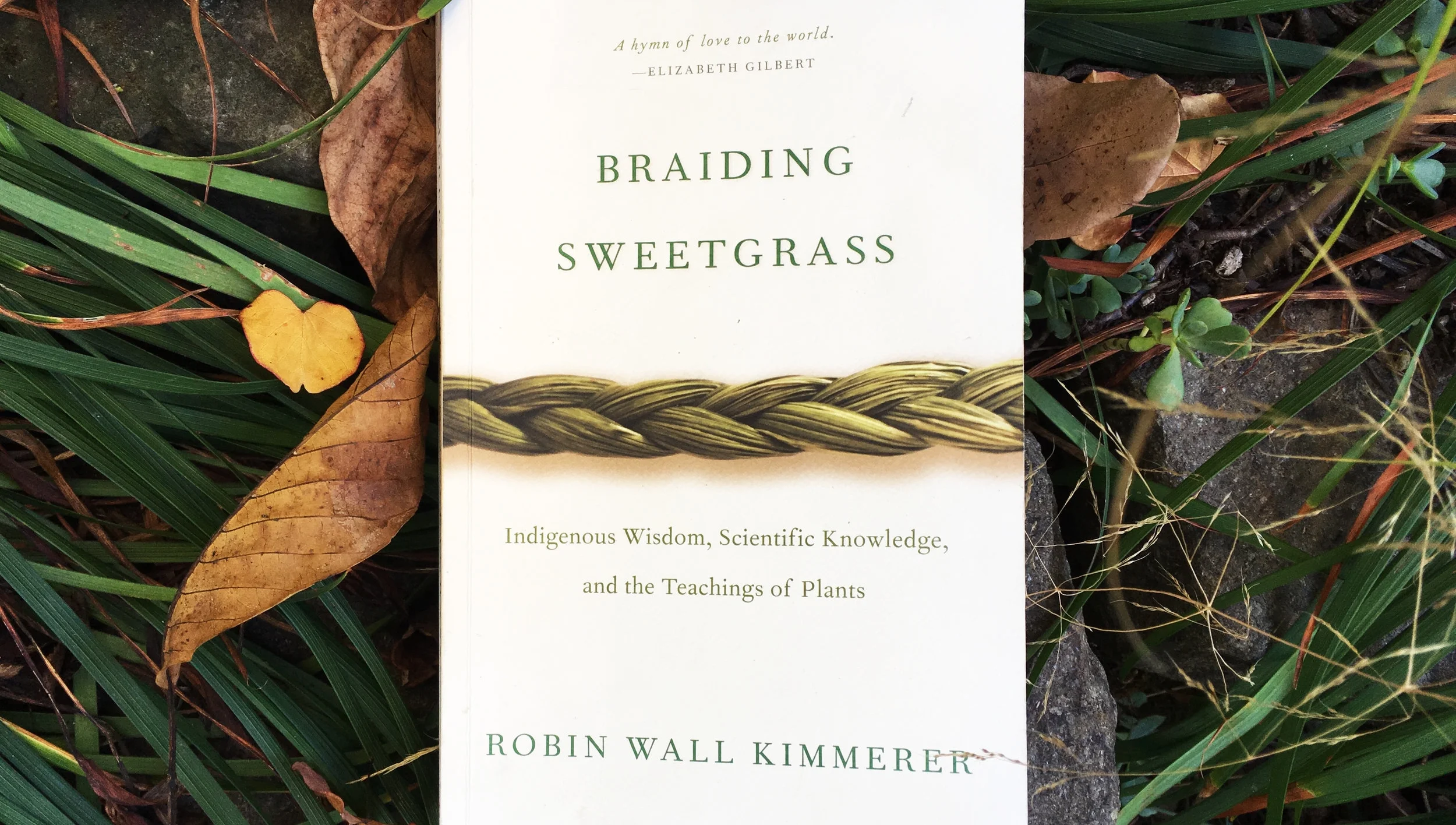Reading Braiding Sweetgrass (November 2018)
Reading Braiding Sweetgrass (November 2018)
Restoring our world and ourselves through ecology and Native American wisdom
In the highly acclaimed book Braiding Sweetgrass, Dr. Robin Wall Kimmerer weaves two frames of knowledge: science and Native American wisdom. Together they help us better understand our ecology, land, and world around us than each alone. The central statement of book is healing our environment and ourselves requires the acknowledgment and celebration of our reciprocal relationship with the rest of the living world. It requires "an economy that is aligned with life, not stacked against it." Feel that way too? Join PUGS' highest rated instructors for our own interweaving of ecology and Native American wisdom. "Decoding Plants" instructor Mulysa Melco and "Portland's Urban Native Americans: How to be an Ally" instructor Christine Dupres will teach you how to embody the lessons in this life-affirming, life-changing work.
Date: Tuesdays, November 6, 13, 20, 27
Time: 6:30-8:30pm
Location: Wayfinding Academy | 8010 N. Charleston Ave
Tier A Pricing: $199 ($30/hr or above wage earners)
Tier B Pricing: $149 ($16-29/hr wage earners)
Tier C Pricing: $99 ($15/hr or below wage earners)
See our Pricing + Generosity Policy for more information on tiered pricing.
PUGS is a lifelong learning community. Register with a friend and get 25% off with the code YOUVEGOTAFRIEND
Prior to class, please read the first five chapters of Braiding Sweetgrass: Indigenous Wisdom, Scientific Knowledge and the Teachings of Plants by Dr. Robin Wall Kimmerer.
We all come from "people of place." How do we reconnect with the birthright of belonging in the current era of colonization, mobility, and capitalism? In Braiding Sweetgrass: Indigenous Wisdom, Scientific Knowledge and the Teachings of Plants, Dr. Robin Wall Kimmerer uses her roles as a scientist-professor and as a member of the Citizen Potawatomi Nation to explore our ecological crisis and relationship with nature. In dialogue with your classmates, you'll develop your practice of reciprocity and meaning, deepen your attachment to the living entities of this land, and find ways forward through the current crises of personal and planetary health with indigenous knowledge.
In this class you can expect to:
Adopt a "field site" where you will sit weekly and contemplate with journal, ink, and watercolors.
Participate in dialogue around provocative questions about our earth and our selves
Sketch and draw in artistic exercises designed to expand your heart and mind.
Try out this experimental and one-of-a-kind PUGS class. You'll discover wonderful ideas in community with your classmates and teachers.
Week 1 – Language of Animacy
How does language reflect and shape our relationship with other species? Do non-humans have their own rights and reasons for being, their own songs, stories, and intelligence different than our own? Experiment with language that shifts our assumptions about the hierarchies and "personhood" in nature.
Week 2 – Land as Home
Where are you from, and how does that shape you? How do you shape the land you live on now? How can we honor the host people of where we live now? Explore the meaning of land from Western, Indigenous, and personal perspectives.
Week 3 – Tended Land
What is "The Honorable Harvest," and what implications does that have in our consumer society? What is the difference between the concepts of sustainability and reciprocity? How do we slow down to examine and disrupt destructive cycles? Discuss tending ethics and practices for listening and connecting with plant allies.
Week 4 – Going Forward
What kind of ancestors do we want to be? How are our values and love made visible? Create an intention/practice/plan of action for tapping into the wisdom of nature to support us in being our best “human delegates to the democracy of the species.”
Instructors: Christine Dupres (Cowlitz/Cree), Ph.D., is a writer, teacher, and Native citizen. She is the author of Being Cowlitz: How One Tribe Renewed and Sustained Its Identity (University of Washington Press). She has taught at the University of Pennsylvania and the University of Oregon. She teaches Portland's Native Americans: How to Be An Ally and The Problem with Privilege at PUGS.
Mulysa Melco is an ecological landscape designer, horticulturist, and artist with a lifelong passion for plants and exploring our connection with the land. She teaches botany and ecology classes for PUGS.



